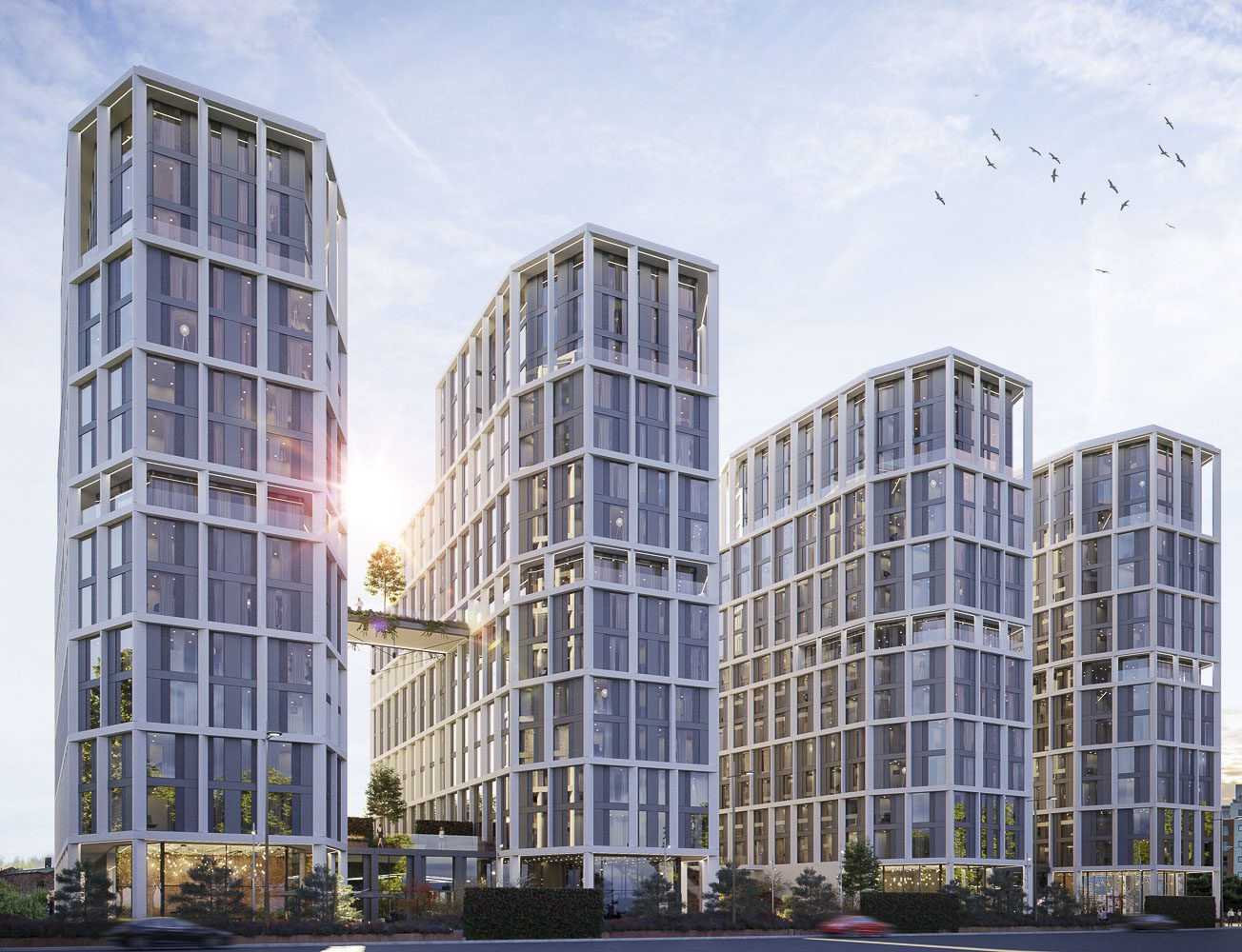Average predicted growth (North West): 20.2% by 2028
Average property price: £196,258
Average rental yield: 7.00% (2023)
Liverpool is a city that’s definitely not short of new property developments.
Widely considered one of the best places to find investment property UK due to its affordability, the city is on the rise.
Liverpool is such a big focus for UK property development because of the high demand levels paired with affordable and growing property prices.
This Northern city is considered one of the most affordable in the country. The Land Registry House Price Index currently lists the average house price at around £196,258.
If you’re carrying out a buy-to-let or buy-to-sell redevelopment project, however, you’re likely to find properties that are priced even lower than this.
Property prices in Liverpool grew by a value of 7.19% in the year to March 2023 (the latest available data). Predictions reveal that the North West region is in for some strong future growth of 20.2% by 2028.
Manchester
Average predicted growth (North West): 20.2% by 2028
Average property price: £252,605
Average rental yield: 7.62% (2023)
If you want to make money from property development projects, Manchester is a city that should definitely be on your radar.
Manchester offers tonnes of potential for anyone looking to buy and sell houses for profit or pursue a buy-to-let property development opportunity.
Much like Liverpool, Manchester is a crucial area for regeneration right now in the UK.
Whether your main focus is becoming a property developer for buy-to-let or buy-to-sell purposes, both routes will bring you a lot of success in Manchester.
In 2023, Manchester boasts average yields of almost 8%, while property price growth is some of the highest in the country.
Over the 12 months between 2022 and 2023, property prices in the city grew by 5.72%, with 11.7% average capital growth expected.
Birmingham
Average predicted growth (West Midlands): 20.2% by 2028
Average property price: £252,817
Average rental yield: 7.94% (2023)
Birmingham is another city that is becoming more and more popular for both property investors and property developers.
With an average property price of £252,817, Birmingham allows investors and developers to find some great deals.
Those who purchase a property development project in Birmingham should see significant market growth, with 20.2% growth expected for the region by 2028.






